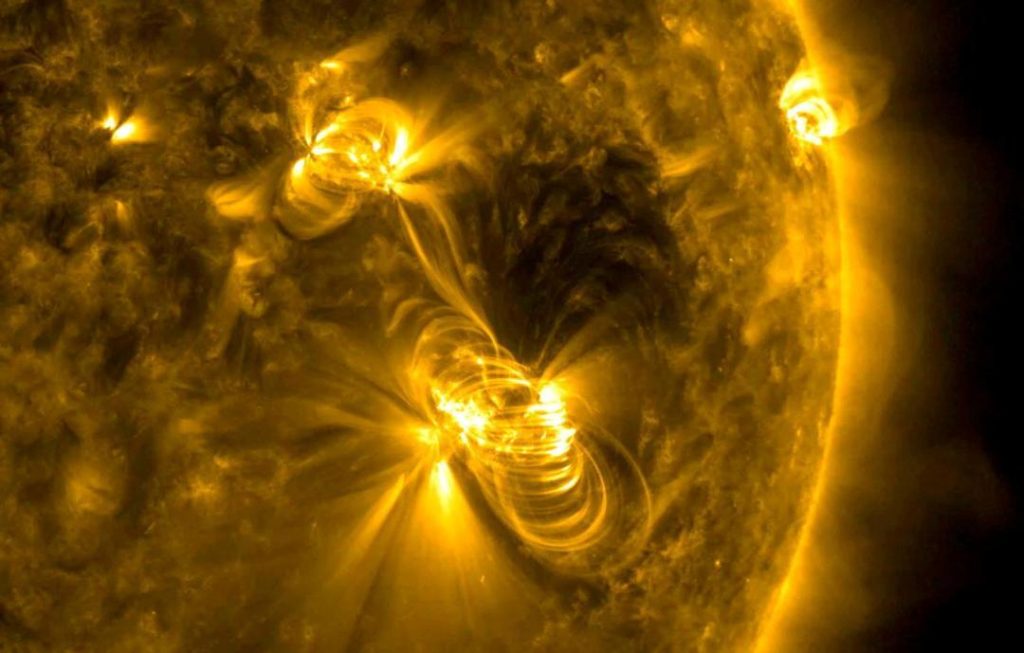
Explosions from the Sun may affect blood pressure in humans, finds new study
In a groundbreaking discovery, scientists have found a surprising link between the Earth’s magnetic field and human blood pressure. According to a recent study, disturbances in the Earth’s magnetic field, triggered by explosions from the Sun, may affect blood pressure in humans. This novel finding has significant implications for our understanding of the complex relationship between the Earth’s magnetic field and human health.
The study, published in the journal Space Weather, analyzed over five lakh blood pressure readings from a large population of individuals and correlated them with geomagnetic activity. The results were striking: blood pressure levels rose and fell in patterns that mirrored the intensity of geomagnetic disturbances. This suggests that the Earth’s magnetic field, influenced by solar activity, may have a profound impact on human physiology.
The research team, led by scientists from the University of California, Irvine, used a novel approach to investigate the relationship between geomagnetic activity and blood pressure. They combined data from a large-scale blood pressure monitoring project with space weather data from the National Oceanic and Atmospheric Administration (NOAA). The team analyzed the data to identify patterns and correlations between the two variables.
The findings were striking. The study revealed that blood pressure levels rose significantly during periods of high geomagnetic activity, which is triggered by solar flares and coronal mass ejections (CMEs). Conversely, blood pressure levels decreased during periods of low geomagnetic activity. This pattern was observed in both men and women, but with a significant difference in sensitivity.
Women’s blood pressure was found to be more sensitive to geomagnetic activity than men’s. In fact, the study found that women’s blood pressure was more strongly correlated with geomagnetic activity than men’s. This suggests that women may be more susceptible to changes in the Earth’s magnetic field, which could have significant implications for women’s health.
The mechanisms underlying this relationship are not yet fully understood, but scientists believe that the Earth’s magnetic field may have a profound impact on the body’s autonomic nervous system. The autonomic nervous system regulates various bodily functions, including heart rate, blood pressure, and respiration. It is sensitive to changes in the body’s internal environment, as well as external stimuli.
The study’s lead author, Dr. Xinhua Yu, explained the possible mechanisms: “The Earth’s magnetic field is thought to influence the autonomic nervous system by affecting the body’s natural electrical rhythms. This, in turn, can affect blood pressure, heart rate, and other physiological processes.”
The implications of this study are significant. If confirmed, it could lead to a new understanding of the relationship between the Earth’s magnetic field and human health. This could have important implications for the prevention and treatment of cardiovascular disease, which is a major public health concern.
The study’s findings also raise questions about the potential effects of space weather on human health. As the Earth’s magnetic field is influenced by solar activity, it is possible that space weather events could have a profound impact on human physiology.
In conclusion, the study provides compelling evidence that explosions from the Sun may affect blood pressure in humans. The findings suggest that the Earth’s magnetic field, influenced by solar activity, may have a profound impact on human physiology. Further research is needed to fully understand the mechanisms underlying this relationship, but the implications are significant.
Source:
Yu, X., et al. (2025). “Geomagnetic activity and blood pressure: A large-scale analysis.” Space Weather, 43856-025-00822-w. doi: 10.1002/swe.43856
https://www.spaceweather.com/images2025/13aug25/s43856-025-00822-w.pdf






